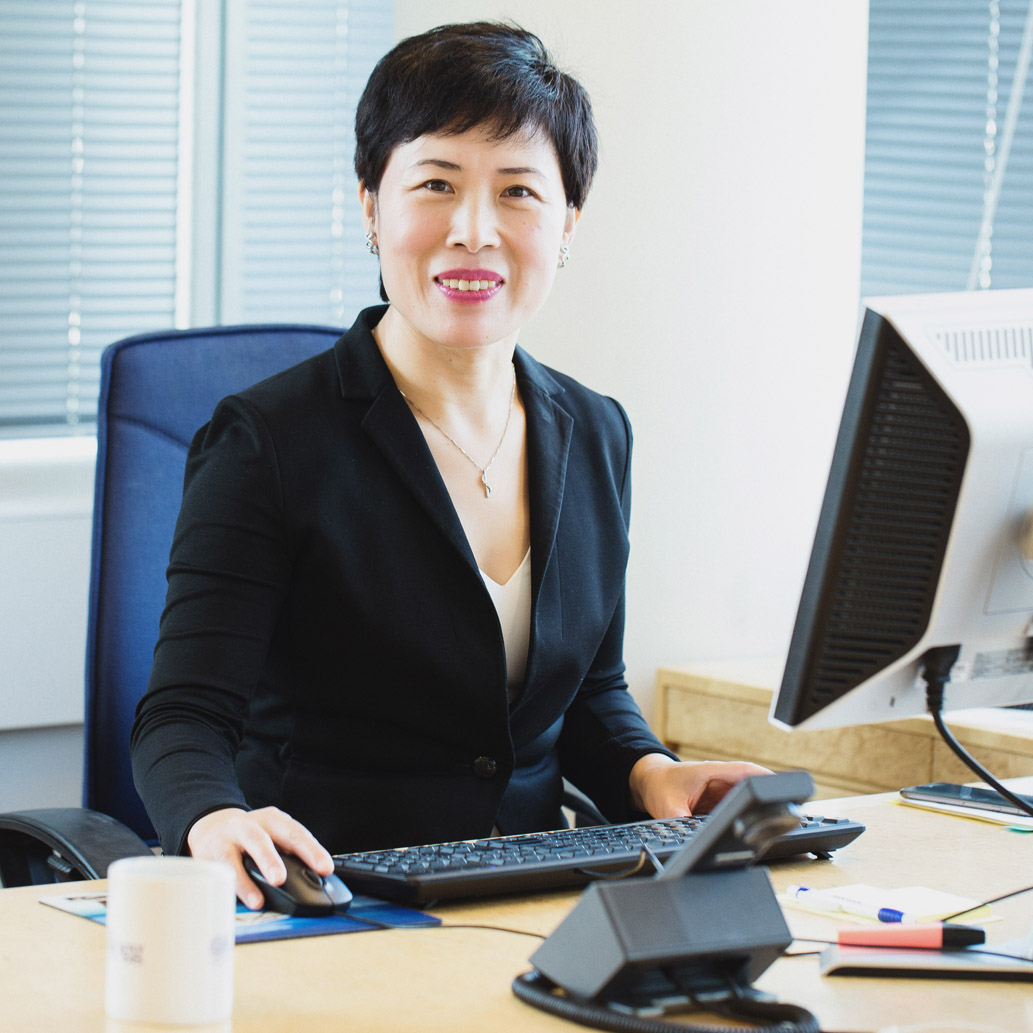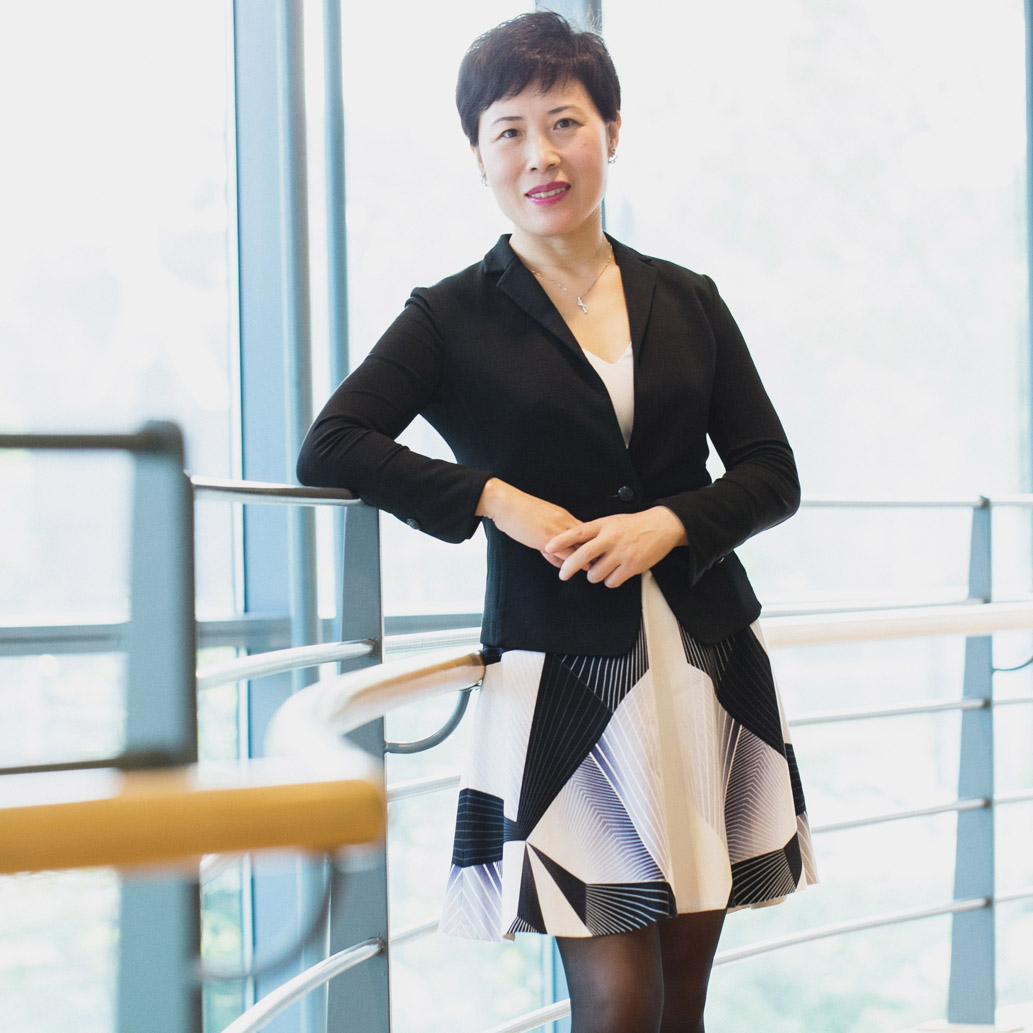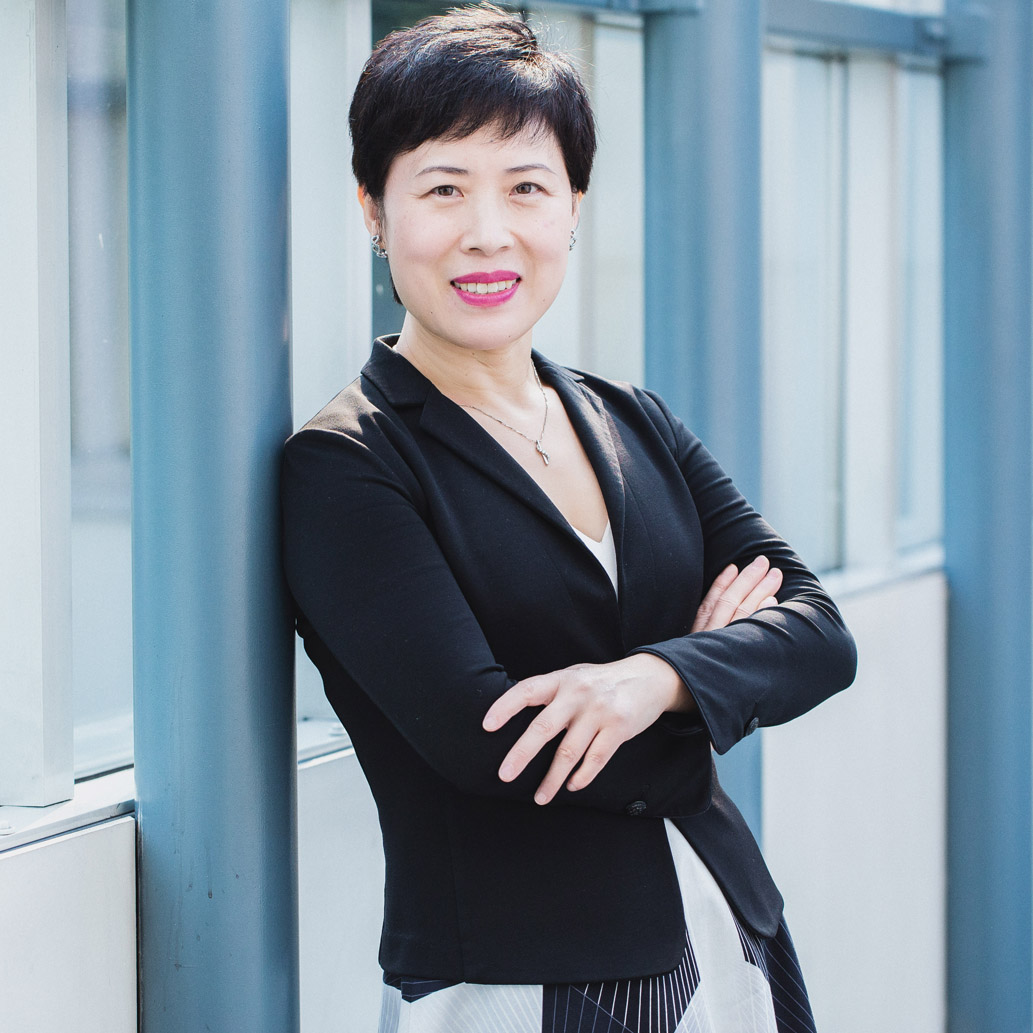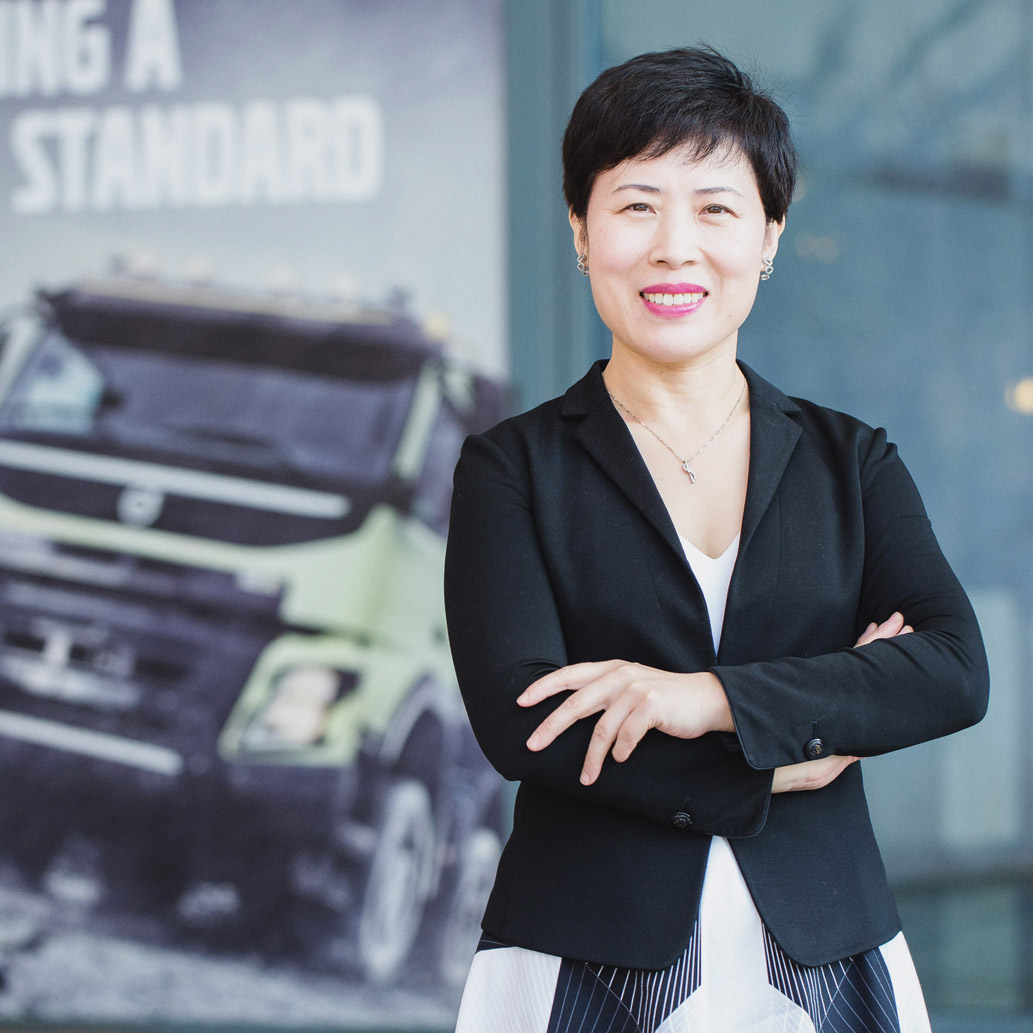Diana, tell us about your early life and why you decided on a career in HR.
In June 1989, I graduated from university in Beijing with a degree in economics and no real idea of where that might take me from a career perspective. Certainly HR was not in my mind. This was a historic time of change for China. Jobs were no longer planned and arranged by universities or educational authorities as they were before. I started applying for jobs, but so did all my graduate peers. For every attractive vacancy, fierce competition came from many intelligent and well-educated applicants. After I tried a number of companies, I became an English teacher at China World Trade Center, a modern complex consisting of high office buildings, an exhibition centre and China World Hotel. At that time, China World Trade Center just laid its foundation along the glorious Chang-An Avenue in Beijing. One month into my role there, a job in the personnel department became vacant as the then incumbent decided to pursue his master’s degree in the United States. It was a great opportunity offered to all the newly hired graduates, but I was lucky enough to be selected and transferred to the Personnel Department. China World Trade Center, then a symbol for economic reform, international commerce and modernisation, gradually opened my eyes towards HR and the world.
HR was very much in its infancy – particularly in China – during the 80s and 90s, but I found the rudiments of personnel compelling. Since I was the only one who could speak and write English in the department, I was able to use those language skills to take responsibility for a multitude of functions, from overseeing contracts for expatriates to receiving foreign partners from abroad. Those four hectic but fruitful years sowed the seed for HR and offered me rich exposure to both local and overseas talents and high-level interactions with the Ministry of Commerce. As foreign investment flowed into China in the early 90s, greater opportunities popped up. So in 1993, I joined Ericsson, then a Scandinavian telecom giant and a notable mover and shaker in the burgeoning telecom infrastructure and mobile phone industry. Based in China and working for a great multinational company, I felt that my professional career was really beginning to take flight, and I became accustomed to a culture a great deal different to the one I had grown up in. In terms of my personal growth and insights of human resources, it all started to fall into place.

This was the era when China was opening up to the world. It must have been an incredibly exciting time to be Chinese - rather than looking out to the world, actually embracing it.
It was exhilarating, a heady time with a huge push from the multinational companies. I was in HR responsible for finding talents and bringing them to the company. Like other telecom companies, we were expanding so fast that for a period of time, I remember conducting about eight to ten interviews a day. In the late evenings I would thoroughly evaluate the profiles I interviewed during the day and identified the qualified ones for business leaders to make their final selection. What a period of interaction with so many talented people. Rather than finding these evaluations tiring, I found my job interesting and motivating, and my curiosity about people and my contribution to the business was combined in such a rewarding way. My career advancement was aided by a rapid expansion of both the industry and the company and I was promoted to HR leader for product lines, after just a couple of years, responsible for leading the People and Culture function of the company. In 1997, after my son had just turned two-years-old, I was given a strategic project to work from Ericsson’s headquarters in Stockholm, providing a global organisational health check solution. My diverse project team looked at what tools we had in place, what gaps existed and investigated what was available in the market, after which we successfully developed a solution to identify human capital and analyse the employees’ commitment. After six months in Sweden, where I had achieved the objectives set by both company and myself, I returned to China and took on the HR leadership role for a joint venture in Beijing. This assignment has broadened my view about HR management in a different business context, where both parties need to align and find common ground all the time. While working with talents sourcing and selection, I brought in many highly competent employees who are recognised as consistent achievers. I also created compensation and benefits schemes, gained some international exposure from the short term assignment at the company’s headquarters and delivered exceptional performance during my time in a multinational environment and joint venture. All of this ensured I was promoted to HR Vice President of Ericsson in China in 2001. In this way I was being identified as a potential executive leader, as a talent for executive positions through the management planning process in the Group. Ericsson not only sent me to leadership programmes including the Leadership Curriculum, Global Perspective and Ericsson Executive, but also put me in charge of the Marketing and Product Portfolio for the services business.

The importance of continuous learning cannot be underestimated.
Agreed, learning is a commitment I made to my personal growth. Even well into my career, I obtained an MBA from the Kellogg School of Management at Northwestern University and the School of Business and Management at The Hong Kong University of Science & Technology in 2001. My development has been very much on-the-job and I’m continually learning through practice. While HR can certainly leave the door wide open to error, I think a fear of making mistakes is a misplaced sensitivity. I’m not saying that everyone should just be left to their own devices, causing mayhem, but it is down to self-responsibility. The adage “learn from your mistakes” is so true. In the early 90s, when there was no email, I once left a hand-written note for a department head. The next day he was furious and challenged me: “how could you spell my name like this?” You see some Swedish names have little dots and circles above their letters and I had put a circle instead of dots. I learnt pretty quickly that I should be very careful with names. I am proud to see that, as a result of the 12 years I remained at Ericsson, the many talents I brought into the company are now taking the top leadership roles in many sectors. Their commitment to the company and their own career advancements are a great reward for me as the one who was able to open the door for them. Recruitment for me was, and still is, the engine of the people business. If you don’t have a heart and soul for people, you will fail to identify and attract talent. No matter how HR transforms as a function, recruitment – and the innate ability to find the right people – is at the fulcrum of human resources.

And then the bubble burst.
Indeed, and the shockwaves were palpable. Ericsson was the leading supplier in China at that time and immediately all the forward momentum started to move rapidly in reverse. We were so used to expansion and growth that we were completely unprepared for rapid deceleration. Leadership impressed on us that “we must share the burden of the group” and reduce costs, so we made hundreds of people in China redundant in just one week. The level of frustration and disbelief was most evident. Affected employees went through a tough time. One of the employees we laid off told me that working for Ericsson was his and his family’s pride and joy. After losing his job, he said he was pretending to come into the office every day in order not to let his family down. His words hit me hard and deep.
Has that experience tempered your instincts about recruitment?
At times like this, there isn’t much worse that can happen than losing your job. It made me realise how much of an impact a redundancy can have on the whole family and how careful we should be in making those kinds of decisions. Recruitment, and by that I mean the identification and placement of talent, is a serious business. Successful CEOs and business leaders are the ones who spend much more time on talent selection than the average leaders because they know that only when the right talents are brought in, will they have the ability to build a fruitful business. Recruitment should always be thought of as a critical decision made by both the one hiring and the one being hired. Over the years, I have experienced great leaders who manage the business upturn and downturn effectively by being strategic with the planning of their human resources and working closely with their HR leaders. They look for possibilities to optimise their resources all the time, by motivating the low and inconsistent performers and setting them clear goals on the one hand and then by providing promising and high-performing talents with even greater responsibilities on the other. I would encourage all leaders to think twice and reflect deeply before a recruitment decision. Are the talents within your team being given enough of a challenge? Have you managed the inconsistent performers effectively? Are you committed to the long-term success of the resources you bring to the company?
Tell us about your next career move.
After 12 years with Ericsson I was head hunted by Heidrick and Struggles with a position at Volvo. At the time I wasn’t thinking of moving and was working towards becoming a global executive for Ericsson, but the opportunity was too good to miss so in 2005 I joined Volvo Group with esponsibility for setting up a more harmonised HR strategy for the Group in China – a region seen as having huge potential for the business but at that time was complex and fragmented. From 2007, I became the HR leader for Volvo Trucks in Asia, a multi-brand trucks organisation that incorporated Volvo, Renault, Mack, UD and Eicher. This was a massive undertaking. Physically, it was demanding, but the experience I was gaining was really enriching – regional exposure, interacting with diverse and experienced leaders from around the globe and gaining insights into different cultures. Over the following years, Volvo Group entered into an era of expansion through global mergers and acquisitions. I was lucky to be involved in the different phases of acquisitions, such as with Ingersoll Rand road business, Dongfeng Commercial Vehicles in China, the UD Trucks integration in Japan and Volvo Eicher Commercial Vehicles in India. If the assumption was that, as a Chinese person, I could apply my cultural sensibilities to every region of Asia Pacific, how wrong that assumption proved to be. Of the many situations I found myself in, one stands out more than all the others. In my first executive team meeting, I had a difference of opinion with the Chairman and CFO of UD Trucks. In front of everyone, I expressed my objection by saying “I am sorry, I don’t agree.” For a younger Chinese woman to say these things to senior Japanese business leaders, in front of the executive team, it really did not come across at all well. They were visibly upset with me and ignored me. It was made clear that I’d overstepped every line in the book of Japanese etiquette. I realised I was in another culture and, rather than finding my forthright behaviour impressive, they expected me to be politely agreeable and obedient. We had a dinner at night and I sincerely apologised. The best thing one could receive after this embarrassing experience is acceptance and generosity. They are great magnanimous leaders and we have since developed a deep and understanding relationship over the many years we’ve worked together, wholly based on trust and respect.
That says much about different cultures across the world in business.
You have to do your homework. It was a big lesson that even though we were both from Asia there are still vast cultural differences and I’m still capable of making mistakes. From then on, I approached new relationships with sincerity and sensitivity. At the end of the day, whenever you are dealing with people, you must learn their values, both from a cultural context and an individual perspective. Such experiences teach you a critical lesson. There’s the business strategy, the nuts and bolts of how an organisation operates and its plans and objectives and then there is this whole other set of human sensitivities. As HR practitioners, surely one of the greatest challenge is finding the synergies in diversity.
There's no escaping the fact that the world economy has been very challenging. You have been the Global Head of HR at Volvo Construction Equipment (Volvo CE) for four years. How well has Volvo CE responded to this during the protracted downturn?
We have been through a four-year period of transformation which has brought the business from a low performer with a profit margin of three or four percent to a high performing business with profits into the double digits. It’s always an incredibly difficult balancing act to achieve efficiencies, enhance leadership and stabilise the business, particularly on a global scale such as this. We have a clear objective to increase every employee’s engagement and this comes right from the top in the form of the company’s leadership. That’s why we review leader performance rigorously and continuously. I believe it is a leader’s obligation to engage their employees and build an effective team. We make sure we assess leadership skills just as much as their business performance. The Volvo Group Attitude Survey we undertake provides us with valuable insights into all our employees.
These are attributes that you can't just monitor and collate in engagement surveys.
Of course, you can’t just survey and stand back. With our data and analytics, we can see a link between how engaged our employees are and how effective they see their leaders. After a deeper analysis of leaders’ behaviour, I realised why this link exists. There is a clear mental and behavioural distinction between an effective and communicative leader and a less effective and less communicative leader. The ones who have high employee engagement and are much more effective in their leadership are those who make the best use of information. They are the ones who integrate all the company’s wider key messages with their own narrative and communicate those messages clearly and with confidence. The ones with lower employment engagement, who are also perceived as being less effective leaders, are often waiting or complaining that they don’t have the information they need. That is very telling – that even in the mechanised and tech-driven world, the human touch and need for information is still relevant. It also shows me that the one who is actively collecting information and sharing those messages with their employees has the right attitude to suit many different jobs – whether those roles be commercial, technical or operational.
There is much said about the importance of diversity in the Boardroom. And when we look at the world at large, it seems to be becoming increasingly fractious and less inclusive. That's a big concern.
I fully agree. This is such an important issue for us all. We have placed inclusion at the very top of our people strategy, along with diversity. We have quite a diverse workforce because of our global acquisitions and position in the business world, but we realised that we do have a clear gender diversity challenge with only 14 percent female leaders. We want 25 percent by 2030. We see the value of gender diversity and inclusion, but sometimes it can be a struggle. As a minority myself – a Chinese woman in Sweden – I think there’s an important balance to make, and I reflect on my own behaviour a great deal. Creating a culture where everybody is answerable to each other and where everybody is asked to speak up will offer us a wonderful, healthy environment to play our part in the running of the business. So it makes perfect sense to have as rich a mix of diversity as possible – made from people with a wide range of experiences.
Tell us about the next stage for Volvo CE, for you and for HR.
We have achieved a lot in transforming the company and now we come to a stage of pursuing excellence through continuous improvement. We have to make the most of everyone’s efforts and potential and it’s up to us to foster that culture of excellence. Another ongoing change is the technology shift into automation and electromobility. We must make sure we have the right strategy in place and a crucial element of that is long term, carefully calculated workforce planning. Digitalisation and automation are happening now – and happening fast. We must be alert and agile all the time. We have already started to bring in competencies which we don’t have, but we cannot replace all our existing competencies with new ones. We have to explore to what extent we need to shift or upgrade our skillset, given our current operational and financial ambitions, as well as the expectations from shareholders. We are constantly carrying out competency shifts to meet the needs of the business, and we are always on the learning curve, adapting to new technologies and ways of operating all the time. As a business that is growing in size and complexity, we prudently work on simplicity and optimisation where possible, and to move with grace and poise, rather than a panic response to the hectic pace that is being set. That is no easy task.












